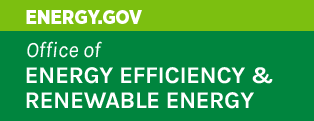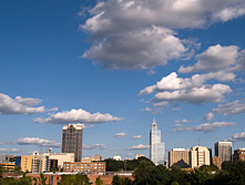Triangle Clean Cities (Raleigh, Durham, Chapel Hill)
The Triangle Clean Cities (Raleigh, Durham, Chapel Hill) works with vehicle fleets, fuel providers, community leaders, and other stakeholders to identify community-driven choices that save energy and promote the use of alternative fuels and advanced vehicle technologies in transportation.
Contact Information
General Stats
- Designated: March 19, 2001
- Population: 2,172,015 (based on 2022 Census estimate)
- Area: 4,520 sq. mi.
- Local/Regional Service Area: Counties: Chatham, Durham, Franklin, Johnston, Lee, Moore, Orange, Wake; Cities of Raleigh, Durham, Chapel Hill
Alternative Fueling Stations
Including public and private stations

- Biodiesel (B20 and above): 8
- Electric (charging outlets): 2,021
- Ethanol (E85): 39
- Hydrogen: 0
- Natural Gas: 8
- Propane: 14
Energy Use Impact*
Annual Energy Impact
Annual Energy Impact by Alternative Fuel Vehicle Project Type
Emissions Reduced*
Annual Emissions Reduced
Emissions Reduced by Alternative Fuel Vehicle Project Type
*2023 DOE-Verified Metrics
Learn about just some of the projects from Triangle Clean Cities (Raleigh, Durham, Chapel Hill). Visit the Triangle Clean Cities (Raleigh, Durham, Chapel Hill) website for more projects and information.
Projects and Case Studies
